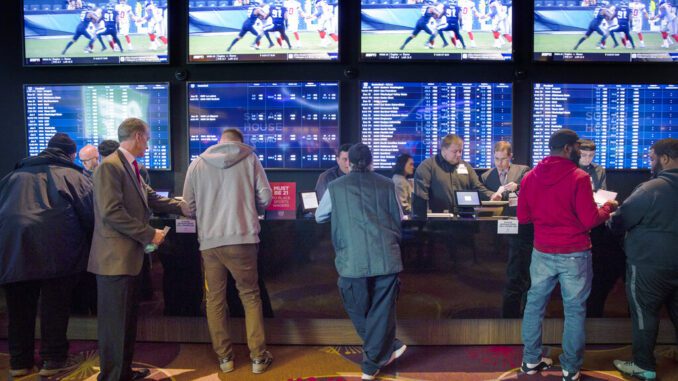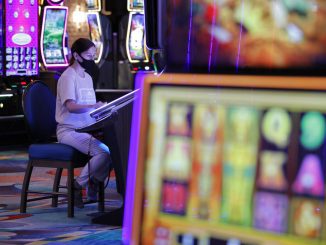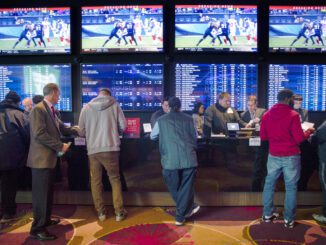
RALEIGH — Sports gambling would be authorized across North Carolina, with up to a dozen entities licensed to offer online and in-person betting, in legislation approved by Thursday by the state Senate.
The bipartisan measure advances to the House although a majority of Senate Republicans, who control the chamber, voted against the bill. Nine Republicans joined most Democrats attending Thursday’s floor session in approving the measure 26-19.
Social conservatives have remained opposed to putting the state’s imprimatur on wagering. But bill supporters say such gambling is already happening, with players using online apps to offer bets from out-of-state locations. And they say it’s better to regulate it and collect revenues, which could go to local needs like public education, from the activity.
“I look at this as more of a voluntary tax from people already taking place in that market,” said Sen. Jim Perry, a Lenoir County Republican and bill sponsor. “We know they’re already spending — choosing to spend their money that way. And I believe I owe it to the people I represent to try to find alternative means to meet the needs of the community.”
The legislation would direct the North Carolina Education Lottery commission to issue between 10 and 12 interactive sports wagering operator licenses, along with supplier licenses for these operators.
The state would collect 8% of an operator’s gross revenues. Half of the proceeds would go to a special fund to attract sporting events and attractions to the state. Most of the rest of the money would head to the state’s regular coffers.
Licensees could offer betting as soon as January on college, professional and some amateur sports, including game outcomes and others not based on final scores. The operators could also set up an in-person betting location within or near a professional sports arena or where a pro golf event is held annually.
The legislature’s fiscal staff, looking at one version of the bill, estimated the combined annual total collected could range from $8 million to $24 million.
Sen. Jim Burgin, a Harnett County Republican, voted against the bill. It “produces very little money and it targets young people,” he said before Wednesday’s preliminary floor vote.
North Carolina Family Policy Council Executive Director John Rustin said Thursday that the bill would mark a major expansion of state-sanctioned gambling that will create more problem gamblers, which in turn harms families. He spoke against the bill in Senate committees.
The population will be “overcome with advertisements and promotions that are pushing, pushing, pushing gambling on our citizenry,” Rustin said.
An amendment approved Wednesday would put aside $1 million toward addressing gambling addiction.
Perry said he expected House supporters of the bill would seek to raise the 8% tax rate to bring in more revenues. He said he also will continue to advocate for ensuring proceeds benefit K-12 school construction. As for whether enough House will like the Senate’s measure, he quipped: “I’m not going to bet on the outcome.”
It’s unusual for Senate Republican leaders to advance a measure to the floor for a vote that doesn’t have the support of a majority of GOP colleagues. Senate leader Phil Berger of Rockingham County, who was among the Republicans voting for the bill, said after Thursday’s vote that the sports wagering bill had been discussed for a while, and “I felt like it was important for us to go ahead and allow the chamber to work its will.”
At least 20 states and the District of Columbia offer sports betting, according to the National Conference of State Legislatures. Interest took off after a U.S. Supreme Court ruling in 2018.
The Eastern Band of Cherokee Indians opened on-site betting operations at its two far western north Carolina casinos in March. Legislation was approved in 2019 authorizing such betting at the casinos.




